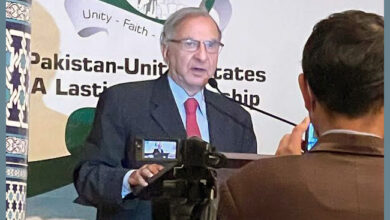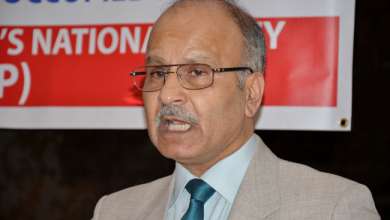ISLAM and Mysticism in the work of Shams-i Tabrīzī – Jalāl ad-Dīn Moḥammad Rūmī – Iqbal Masih

Written By: Franca Colozzo
The mysticism that connects the works of these three great men and thinkers of Islam, even after sometime between them, is like a river that flows towards the sea of faith and spirituality, bringing with it the fertile humus that gave rise to great civilizations such as the Afghan, Pakistani, Persian.
Shams-i Tabrīzī (in Persian language شمس تبریزی; Tabriz, 1185 – Khoy, 1248) was a Persian mystic, poet and philosopher credited with having been the teacher and spiritual guide of Gialal al-Din Rumi, who recalled him with deference in his works, particularly in Diwan-i Shams-i Tabrīzī Maqalat, it was written during the last years of Shams’s life, as his speeches as an old man.
Overall, they give a mystical interpretation of Islam and contain spiritual advice. Some excerpts from the Maqalat allow us to perceive Shams’s thoughts. Rumi was his devoted disciple, according to tradition. Both of them lived in the same period, they were in contact when Rumi, in isolation in Konya for a period of forty days, before fleeing to Damascus, had the opportunity to absorb from him all the profound spirituality that distinguished him. The tomb of Shams-i Tabrizi was recently proposed to be recognized as a UNESCO World Heritage Site.
The Maqalat-e Shams-e Tabrizi (Discourses of Shams-i Tabrīzī) is a prose work, in Persian language, written by Shams in which he tries to infuse a deep spirituality His message which will then be transfused into the Mevlana of Konya (Turkey) is always valid: it is not enough to be a faqih (scholar of religion), but it is necessary to go beyond unexplored universes of faith, beyond mysticism itself, Sufism itself. Introspection that goes beyond one’s own being, not looking at the faults of others, but criticizing oneself first and looking for that river of pure water to drink from, which is called faith. We need a shower of blessings, trying to bypass our own human limitations to strive for the supreme and absolute good: God.
His collection of mystical poetry is watered with pure sources of knowledge and his joy is like crystal water, transparent, surrounded by fragrant flower essences, which echo in the verses of his disciple Mulukshah in “Rose Garden of Shams” (Gulzar- the Shams).
Jalāl ad-Dīn Muḥammad Balkhī (Balkh, 30 September 1207 – Konya, 17 December 1273), known as Rumi جلالالدین محمد رومی, as Mevlānā in Turkey and as Mowlānā (Persian: مولانا) in Iran and Afghanistan, was the faithful direct disciple of Shams-i Tabrīzī.
He was an ʿālim, a Sunni Muslim theologian, a refined mystic poet of Persian origin, and a continuator of the work of his great master Shams-i Tabrīzī. He is the spiritual expression, translated into poetry, brought to the highest levels of formal and conceptual perfection.
Founder of the Sufi brotherhood of “whirling dervishes” (Mevlevi), he is considered the greatest mystical poet of Persian literature. When he died, his followers organized themselves in the order Mevlevi, which, through ritual dances and music to the sound of the flute ney (from Rumi exalted in the preface of his Masnavī), allowed to reach meditative states of intense participation to approach stages of perfection ever closer to divinity, almost separating from the materiality of one’s body.
In Konya, in Asia Minor, where the family settled, Rumi was followed by his father, a renowned preacher, in the theological sciences, and, after his death, he also perfected himself in mysticism.
He himself became a well-known spiritual guide for both sermons and doctrine, and a group of scholars gathered around him to write a series of theological writings.
The earthly reality, explicitly supports Rūmī, is nothing but a reflection of the symbolic reality that is the true reality.
Two spiritual events were determined in the life of Rūmī: one was the meeting, in 1244, with the mysterious character known as Shams-i Tabrīzī (“the sun of Tabrīz”), his spiritual teacher in turn a profound scholar of theological sciences and Islamic juridical, particularly wise in regard to the school of Shāfifeī, the sciafeismo. For a year they both devoted themselves entirely to a spiritual search, but after the disappearance of Shams in mysterious conditions, Rumi had a moment of particular creative ability that led him to compose a collection of poems including thirty thousand verses.
Later in the years he composed another collection of poetic compositions divided into six books containing more than 40 thousand stanzas. His son Walad wrote a biography of his father, who kept the orders of the Dervishes – Mevlana, as a living testimony of his founder.
The second event was the knowledge, in Damascus, of Ibn Arabi, a great Islamic mystic, among the greatest theorists of waḥdat al-wujūd or “unity of being”. Rūmī manages to perfectly blend God’s intoxicated enthusiasm of Shams-i Tabrīz, with the subtle speculations and visions of Ibn al-‘Arabi.
The mystical vision of Rumi, through the Mevlana or rotating dervishis, still fascinates beyond the poems and mysticism of which all his work is imbued. Centuries later, an invisible thread unites the first, highly ascetic figure of Iqbal Masih.
Iqbal Masih, in Urdu اقبال مسیح (Muridke, 1983 – Muridke, April 16, 1995), was a Pakistani child laborer, trade unionist and activist who became a symbol of the struggle against child labor. Born in 1983 in a very poor family, he was already working in a furnace at the age of four, five was sold by his father to a carpet seller to pay a debt of a few dollars.
Forced to work 10-12 hours a day, chained to the frame and undernourished, so much so as to damage growth, in 1992 he managed to sneak out of the factory and participate with other children in a demonstration of the Bonded Labor Liberation Front (BLLF ), an organization founded by Ullah Khan that obtained in the same year the promulgation of the Bonded Labor System Abolition Act. Returning to the carpet factory, he refused to continue working despite the beatings.
The owner argued that the debt instead of decreasing had increased to several thousand rupees, claiming to include the scarce food given to Iqbal, supposed processing errors, etc. The family was forced by threats to leave the village, Iqbal, hosted in a hostel by the BLLF, began to study again. From 1993 he began to travel, to participate in international conferences. Since then he started his adventure around the world to raise public awareness of the denied rights of Pakistani child laborers, thus contributing to the debate on world slavery and the international rights of children.
In December 1994, he received the Reebok Human Rights Award at Northeastern University in Boston. Given its very young age, a special category was created: “Youth in Action”. In February 1995 he participated in a meeting between representatives of the BLLF and the carpet industry, at the invitation of the newspaper “The Nation”, in which the comparison reached harsh tones. Perhaps that meeting was fatal to him. He died in mysterious circumstances, in his hometown of Muridke (Pakistan), on April 16, 1995. Several schools were named in the western world; in Italy, in particular. In 2000, he received the “World’s Children’s Prize” for children’s rights.
His remaining message to the story is: “No child should ever hold a work tool. The only work tools a child should hold are pens and pencils ».
Finally, having outlined three prominent figures who have made the history of the spiritual and activist path in defense of children, it is clear that the message of Islam is a message of love and peace. The latter in particular sees the constituent components of the pillars of Islam in the joint action, although located in different eras, of spirituality and activism.
Today, in the month in which Ramadan is celebrated, the need to unite the never-dormant spirituality of Shams-i Tabrīzī and of Jalāl ad-Dīn Moḥammad Rūmī is increasingly felt with the activism and humanitarian lesson of Iqbal Masih.
On the threshold of the third millennium, when it seems that the world is more than ever soaked with hate (the dark source in the poetry of Rumi, source of pain and evil) and of wars (Syria, Yemen, etc.), when they seem to be shipwrecked the last hopes (climate, environment, pollution, lack of values, etc.), here comes the profound voice of poetry that has its roots in the sources of good, of spirituality, in a renewed confidence in man and in the spark divine that is in him.





